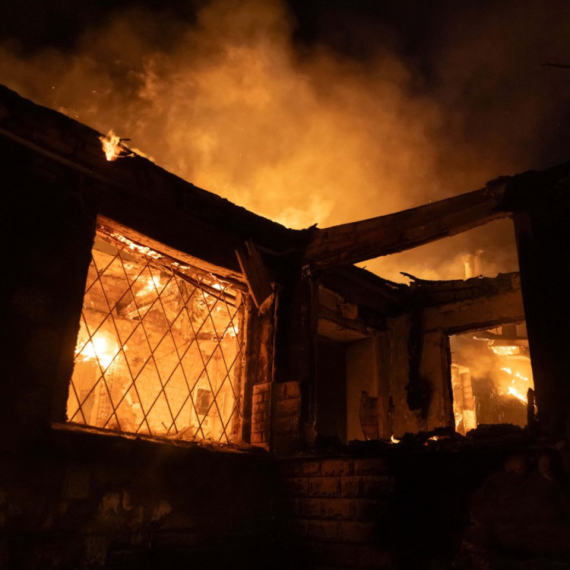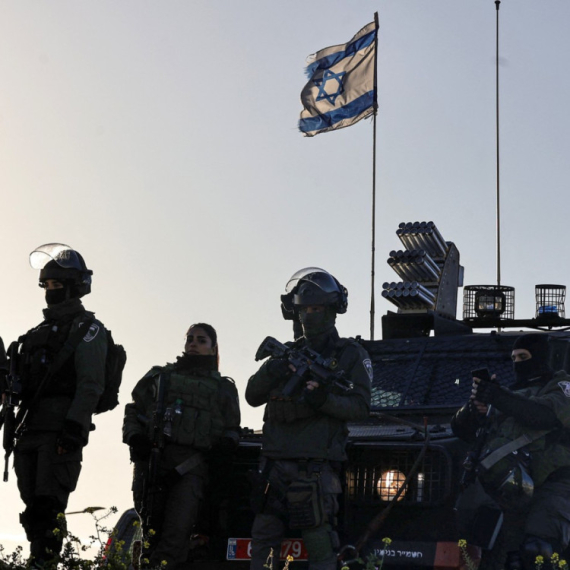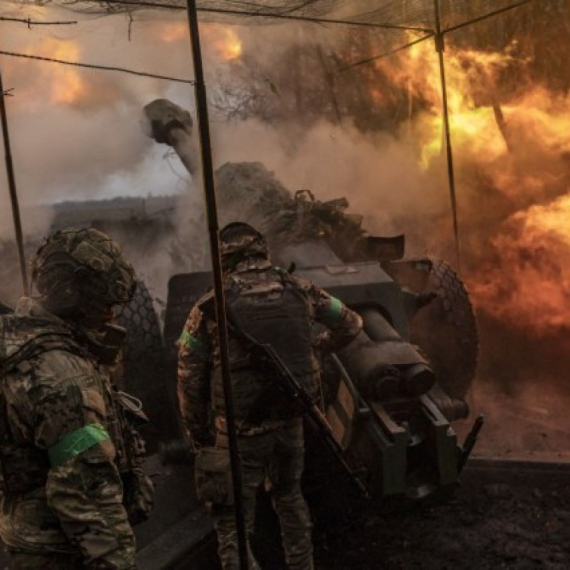Jeremić: UNMIK to stay in Kosovo
The survival and authority of the UN mission must not be called into question, Foreign Minister Vuk Jeremić told the UN Security Council yesterday.
Thursday, 18.06.2009.
09:30

The survival and authority of the UN mission must not be called into question, Foreign Minister Vuk Jeremic told the UN Security Council yesterday. The looming decision of the International Court of Justice is hampering UNMIKs work in Kosovo, said UNMIK Chief Lamberto Zannier in his statement. Jeremic: UNMIK to stay in Kosovo The majority of UN member-states noted that the number of returnees to Kosovo was disappointingly low, but that the situation was peaceful, though fragile. Jeremic called on the Security Council to insist on adherence to commitments stemming from resolution 1244 and to desist from encouraging new recognitions of Kosovo’s unilateral independence. “No one should be permitted to ignore the decisions of the Security Council. We therefore urge the Council to insist that all parties uphold commitments that arise from Resolution 1244 (1999). It was passed under Chapter VII of the UN Charter, which binds all to respect its provisions in full. This is our common legal imperative, and our moral obligation,” he said. Reiterating that the issue of Kosovo’s independence was now before the International Court of Justice in The Hague, Jeremic said that everyone had to respect the fact that the court was now examining this case. “Therefore,” he added, “new UDI recognitions should not be encouraged. And multilateral bodies should refrain from extending membership to the secessionist authorities in Pristina.” “In the meantime, we should find strength to put our differences on status to one side, for the sake of peace and stability, and the residents of the province,” the minister insisted. “As a result of our measured response to UDI (unilateral declaration of independence, or UDI, by the ethnic-Albanian authorities of Serbia's southern province of Kosovo and Metohija), the unstable equilibrium on the ground has largely been kept in check. We have sought to contain flash-points despite numerous provocations – such as targeted power cuts, pressure to sign loyalty oaths, and the construction of new, unauthorized housing settlements,” Jeremic noted. Jeremic said that the EU mission to Kosovo had reached full operating capacity on April 6, and that Serbia was working with this mission and UNMIK on a host of technical issues of common interest. However, he also highlighted the problems Serbian officials were having entering Kosovo, and urged EULEX to take all necessary steps to address this matter. The minister called the Kosovo Security Forces an “illegal paramilitary formation” that constituted a direct threat to peace and stability in the Western Balkans, and demanded their disbandment. UNMIK Chief Zannier told the UN Security Council session that the general security situation in the province was fragile and that the number of returnees to that area was disappointing. Presenting UN Secretary General Ban Ki-moon’s regular quarterly report on the situation in Kosovo, Zannier pointed out that in spite of the Kosovo authorities' invitation to displaced persons to return to their homes, the number of returnees was very small. According to UNHCR figures, which the secretary general quoted in his report, only 137 expelled persons, including 24 Albanians, 30 Serbs and 54 members of the Roma, Ashkali and Egyptian populations had returned to Kosovo. Zannier said that the reconfiguration of the UN mission in Kosovo had been opportune and needed, and that it had been carried out in a transparent manner. Vuk Jeremic (FoNet, archive)
Jeremić: UNMIK to stay in Kosovo
The majority of UN member-states noted that the number of returnees to Kosovo was disappointingly low, but that the situation was peaceful, though fragile.Jeremić called on the Security Council to insist on adherence to commitments stemming from resolution 1244 and to desist from encouraging new recognitions of Kosovo’s unilateral independence.
“No one should be permitted to ignore the decisions of the Security Council. We therefore urge the Council to insist that all parties uphold commitments that arise from Resolution 1244 (1999). It was passed under Chapter VII of the UN Charter, which binds all to respect its provisions in full. This is our common legal imperative, and our moral obligation,” he said.
Reiterating that the issue of Kosovo’s independence was now before the International Court of Justice in The Hague, Jeremić said that everyone had to respect the fact that the court was now examining this case.
“Therefore,” he added, “new UDI recognitions should not be encouraged. And multilateral bodies should refrain from extending membership to the secessionist authorities in Priština.”
“In the meantime, we should find strength to put our differences on status to one side, for the sake of peace and stability, and the residents of the province,” the minister insisted.
“As a result of our measured response to UDI (unilateral declaration of independence, or UDI, by the ethnic-Albanian authorities of Serbia's southern province of Kosovo and Metohija), the unstable equilibrium on the ground has largely been kept in check. We have sought to contain flash-points despite numerous provocations – such as targeted power cuts, pressure to sign loyalty oaths, and the construction of new, unauthorized housing settlements,” Jeremić noted.
Jeremić said that the EU mission to Kosovo had reached full operating capacity on April 6, and that Serbia was working with this mission and UNMIK on a host of technical issues of common interest.
However, he also highlighted the problems Serbian officials were having entering Kosovo, and urged EULEX to take all necessary steps to address this matter.
The minister called the Kosovo Security Forces an “illegal paramilitary formation” that constituted a direct threat to peace and stability in the Western Balkans, and demanded their disbandment.
UNMIK Chief Zannier told the UN Security Council session that the general security situation in the province was fragile and that the number of returnees to that area was disappointing.
Presenting UN Secretary General Ban Ki-moon’s regular quarterly report on the situation in Kosovo, Zannier pointed out that in spite of the Kosovo authorities' invitation to displaced persons to return to their homes, the number of returnees was very small.
According to UNHCR figures, which the secretary general quoted in his report, only 137 expelled persons, including 24 Albanians, 30 Serbs and 54 members of the Roma, Ashkali and Egyptian populations had returned to Kosovo.
Zannier said that the reconfiguration of the UN mission in Kosovo had been opportune and needed, and that it had been carried out in a transparent manner.


























































Komentari 13
Pogledaj komentare